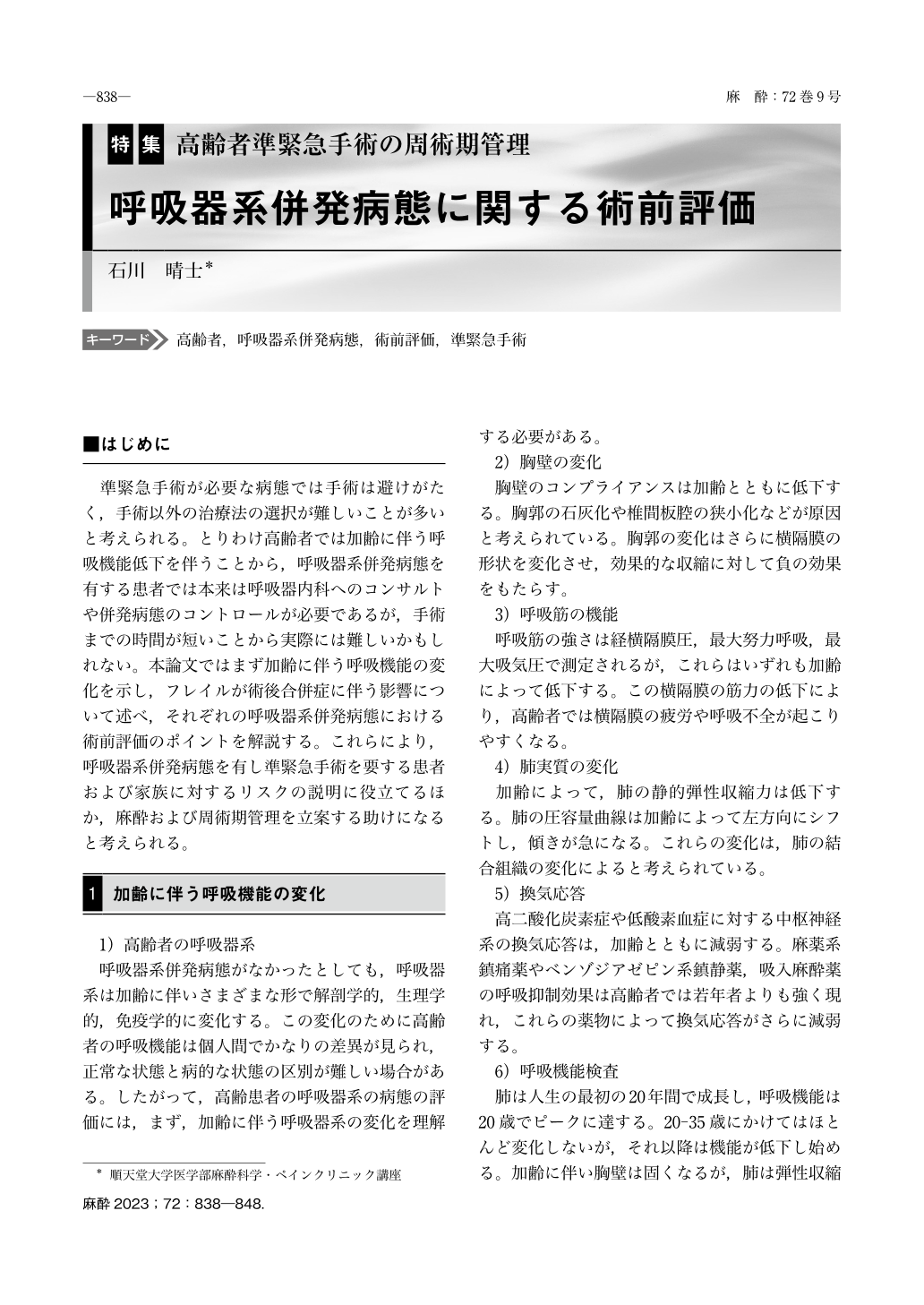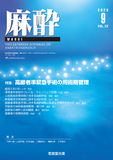Japanese
English
- 有料閲覧
- Abstract 文献概要
- 1ページ目 Look Inside
- 参考文献 Reference
はじめに
準緊急手術が必要な病態では手術は避けがたく,手術以外の治療法の選択が難しいことが多いと考えられる。とりわけ高齢者では加齢に伴う呼吸機能低下を伴うことから,呼吸器系併発病態を有する患者では本来は呼吸器内科へのコンサルトや併発病態のコントロールが必要であるが,手術までの時間が短いことから実際には難しいかもしれない。本論文ではまず加齢に伴う呼吸機能の変化を示し,フレイルが術後合併症に伴う影響について述べ,それぞれの呼吸器系併発病態における術前評価のポイントを解説する。これらにより,呼吸器系併発病態を有し準緊急手術を要する患者および家族に対するリスクの説明に役立てるほか,麻酔および周術期管理を立案する助けになると考えられる。
Surgery is inevitable in conditions that require urgent surgery, and it is often difficult to select non-surgical treatment options. In this article, we first show the changes in respiratory function with aging, discuss the impact of frailty on postoperative complications, and explain the key points of preoperative evaluation for each respiratory co-morbid condition. For example, in patients with a history of COVID-19 infection, it is also important to identify the time of infection. In domestic and international epidemiologic studies, surgery performed within 7 to 8 weeks after infection generally tends to have worse outcomes. If surgery is to be performed in the waiting period, it should be performed 7 weeks after confirmation of infection. The timing of vaccination is also important. The STOP-Bang and Berlin questionnaires are useful in identifying patients with obstructive sleep apnea in hectic situations requiring semi-urgent surgery. This article will help explain the risks to patients with respiratory comorbidities who require urgent surgery and their families, as well as assist in planning anesthesia and perioperative management.

Copyright © 2023 KOKUSEIDO CO., LTD. All Rights Reserved.


